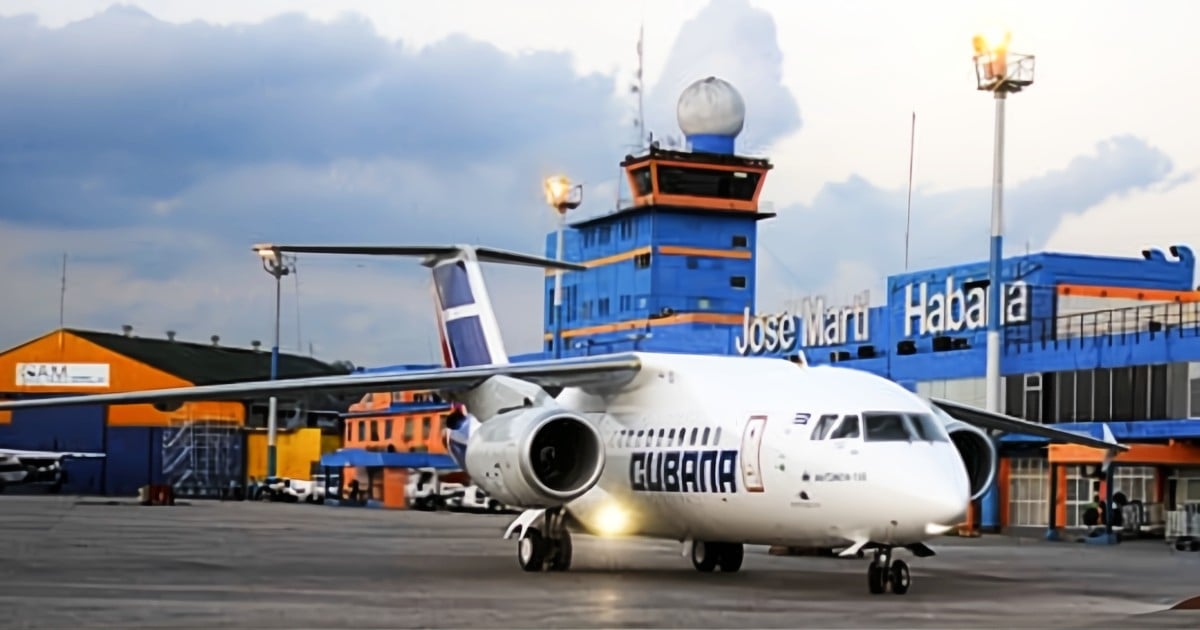The shortage of aviation fuel JET-A1 in Cuba has started to severely impact the international airports in Havana and Varadero, according to the operations management of ECASA. Authorities have warned that this scarcity will affect flights from December 1 to December 8, with a potential extension "until further notice."
International airlines, especially those operating towards Russia and Canada, have issued alerts to passengers, anticipating delays, rescheduling, or cancellations. In response to this uncertainty, the Russian Embassy in Cuba has advised tourists to maintain constant contact with their tour operators.
JET-A1 is a type of highly refined kerosene, specifically designed for use in aviation turbine engines. Its composition allows it to maintain optimal performance across a wide range of temperatures and altitudes, making it the preferred fuel for commercial and military aviation worldwide.
Key Features of JET-A1
Low Freezing Point: JET-A1 has a freezing point of -47°C, which allows its use in high-altitude flights without the risk of solidification.
High Thermal Stability: It withstands high temperatures without breaking down, ensuring efficient engine operation.
Low Sulfur Content: This reduces pollutant emissions and extends the lifespan of engine components.
JET-A1 is crucial for the operations of commercial airlines and military aviation activities. Replacing it with another type of fuel available in Cuba is extremely challenging due to the specific technical requirements of modern aviation. Jet engines in commercial aircraft are specifically designed to run on fuels that meet strict international standards.
JET-A1 Shortage in Cuba
Cuba primarily acquires JET-A1 aviation fuel through international imports, with Venezuela and Russia being its main suppliers due to bilateral agreements. However, the economic crisis in Venezuela and international sanctions have significantly affected supply.
Although the island has refineries like those in Cienfuegos and Santiago de Cuba, they do not produce JET-A1 in sufficient volumes, limiting themselves to basic fuels such as gasoline and diesel. The reliance on donations, like those received from Mexico, and the difficulty in acquiring fuel in the global market due to a lack of foreign currency have aggravated the energy crisis, severely impacting airport operations and international flights.
Conclusion
The energy crisis in Cuba, reflected in the shortage of JET-A1 aviation fuel, is severely affecting not only the aviation sector but also tourism, one of the country's economic pillars. The reduction of international flights due to fuel scarcity coincides with the peak tourism season, leading to a decrease in visitor arrivals, particularly from Canada, the main source market.
Additionally, frequent blackouts and inadequate basic services in hotels have resulted in mass cancellations of reservations by international travel companies, damaging Cuba's image as a reliable destination. This critical situation, which also affects electricity supply and other strategic sectors, threatens to worsen the already precarious Cuban economy.
Without immediate structural solutions to stabilize fuel supply and ensure basic services for tourists and industries, Cuba faces prolonged negative impacts on its tourism revenue.
Common Questions About JET-A1 Fuel Shortage in Cuba
Why is JET-A1 fuel crucial for aviation?
JET-A1 fuel is vital for aviation because it is specifically refined for turbine engines, providing stability in a wide range of temperatures and altitudes, essential for safe and efficient flight operations.
How does the JET-A1 shortage affect Cuba's tourism?
The shortage of JET-A1 fuel leads to reduced international flights, coinciding with the peak tourism season, which decreases visitor arrivals and affects the country's economic revenue from tourism.
